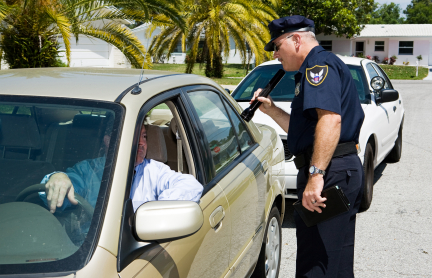 Being accused of using drugs can be a damaging experience. You may be afraid of the criminal implications of these accusations, how they will affect your job, and the impact on your relationships. When you are asked to take a drug test by the police after being pulled over, you may be even more worried by the prospect of a false positive. In fact, if the tests are not handled properly, they could seriously impact your case. That’s why you call a lawyer no matter what.
Being accused of using drugs can be a damaging experience. You may be afraid of the criminal implications of these accusations, how they will affect your job, and the impact on your relationships. When you are asked to take a drug test by the police after being pulled over, you may be even more worried by the prospect of a false positive. In fact, if the tests are not handled properly, they could seriously impact your case. That’s why you call a lawyer no matter what.
Field Procedures for Drug Testing
Police officers have set procedures when investigating whether a suspect is under the influence of drugs, whether that suspect is walking down the street or driving a vehicle. When a suspect seemingly cannot maintain coherent thoughts, shows erratic behavior, or weaves between lanes of traffic, he may be impaired, which can lead the police to pull the suspect aside to evaluate him.
When the police suspect someone is under the influence of drugs or drunk in the public, they will typically perform a standardized field sobriety test. Field sobriety tests include a horizontal gaze nystagmus (HGN) test, which involves shining a light in the suspect’s eyes, a walk-and-turn test, and a one-leg stand test. The reliability of these tests has long been debated by researchers, but they are often a prelude to a chemical drug test.
Understanding Chemical Drug Tests
Chemical drug tests are typically requested by officers who suspect a driver or pedestrian of abusing drugs, and who feel that they need more evidence to land a conviction. Given that there is no breathalyzer test for drug use, officers will need to request a chemical test, which may involve analyzing the suspect’s hair, urine, blood, or saliva – but officers can only request this if they have probable cause. While you have the right to refuse a drug test when you are pulled over, this can lead to an automatic suspension of your driver’s license with the DMV, and the police may use your refusal against you to imply guilt in a criminal trial.
The reliability of any of these tests will vary depending on the circumstances. For example, let’s look at marijuana. While possessing and using a small amount of cannabis is legal in California for anyone 21 years or older, driving while under the influence of THC is not, and can result in a DUID. If you are pulled over by an officer who suspects you of driving while intoxicated, he may administer a field test.
After the field test, if the officer still suspects you, he can administer several chemical tests. With regard to hair and urine, the testing kits can only indicate the presence of chemicals that the body produces after drug use. This means they may not show that you were under the influence at the time of the arrest, just that you used marijuana recently.
Blood tests, on the other hand, can show traces of drugs that were recently ingested and may determine you are intoxicated, but these tests must be administered within two hours of an arrest at a certified clinic. Outside of that window, these tests can be inaccurate. There is also the risk your blood will return a false positive due to over-the-counter medication, prescription drugs, and even herbal remedies.
In the past few years, police in Southern California have started to use saliva-swab tests for drugs such as THC, methamphetamines, and cocaine. According to the LA Times, San Diego police have utilized a new device called the Dräger DrugTest 5000. Suspects are asked to wipe a cotton swab on the interior of their mouths, which the test will analyze for trace amounts of drugs. Unlike blood tests, these devices do not measure intoxication, only whether a suspect has recently used drugs. Whether this test comes back negative or not, the police may still request a blood test for further verification.
Are These Tests Universally Accepted?
The most accepted types of tests in California courts are the standard field sobriety test and blood tests, but there are still limitations. Field sobriety tests were designed for ideal environments and, when they were first implemented in the ‘70s, there were clear signs that the tests were inaccurate. The initial research study performed by the Southern California Research Institute (SCRI) to evaluate the standard field sobriety tests showed that almost half the simulated arrests were “erroneous.”
While blood tests are considered more reliable and accurate, there are still margins for error. Clinics can mix up blood samples, inaccurately record data, and even administer the tests incorrectly. There is also the possibility that other medications will influence the results and lead to false positives.
If you or someone you love has been charged with driving while impaired, remember that you still have options. At Law Office of Michael L. Guisti, our Orange County drug defense attorney has the skill, knowledge, and experience to review the evidence against you and build a strong case. We can explain to a jury how the arresting officer performed an illegal stop, whether a test was performed wrong, or that you only showed the objective signs of intoxication. Do not allow a prosecutor to convict you without a fight. Call Law Office of Michael L. Guisti at (714) 530-9690 or toll-free at (888) 478-8999 to schedule a free case evaluation.

